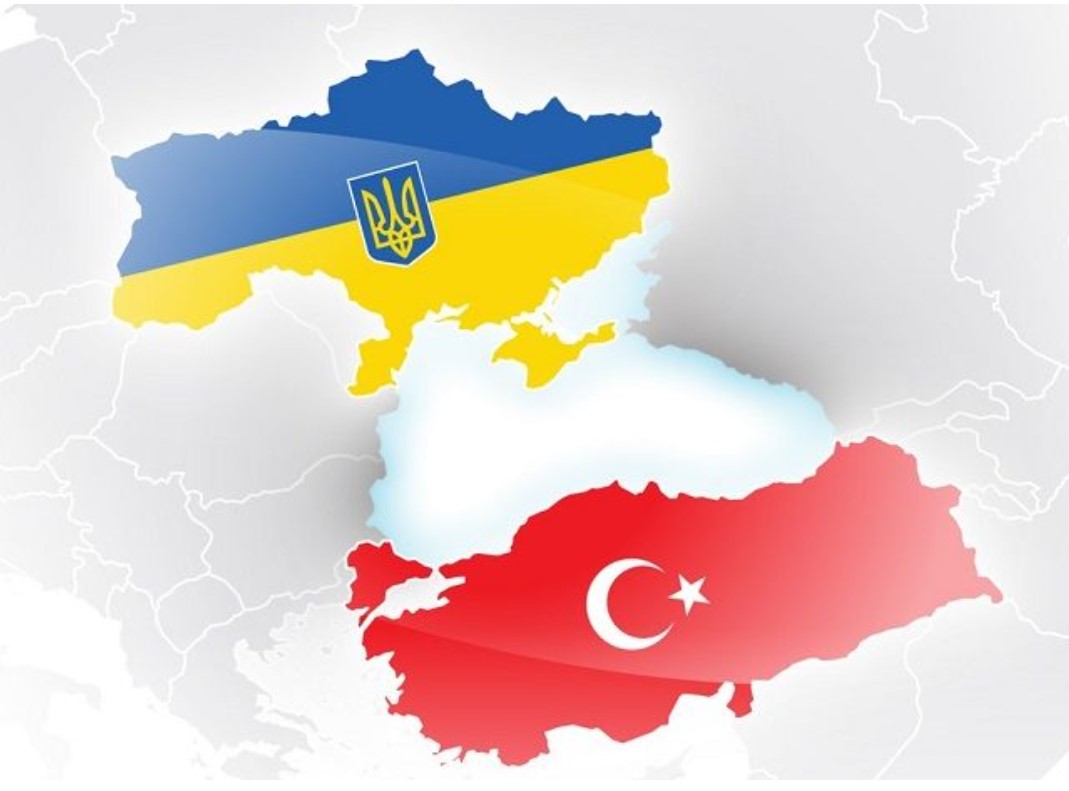In the wee hours of Thursday morning, two of Ukraine’s Neptune missiles reportedly struck Russia’s flagship naval vessel, the Moskva, some 65 nautical miles south of Odesa. The storied gunship, which served in Georgia, Syria, and at the Malta Summit after being built by Ukrainian hands in Soviet Mykolaiv in 1976, quickly sent out a distress signal.
A Turkish ship that had been on Black Sea patrol soon arrived and helped evacuate more than 50 Russians before the Moskva slipped beneath the waves. Just hours prior, Serbian President Aleksandar Vucic had informed Turkish President Recep Tayyip Erdogan of his desire to buy Turkish Bayraktar TB2 drones, thanks in part to their widely praised performance in Ukraine.
It is hard to fathom, given the brutality of the conflict and its fellow Nato members’ staunch backing of Kyiv, but nearly two months in, Ankara has been able to remain neutral and host peace talks while backing both participants. In the war’s early days, I asserted that Turkey would at some point have to choose, but thus far I’ve been proved wrong – to the point that even Ukraine is OK with Turkey’s balancing act.
Pointing to mounting evidence of war crimes committed in Ukraine, many western analysts view this as a Manichaean battle between good and evil, a clash between freedom, civilisation and democracy and a dark, Hobbesian future of violence and rule by force. Turkey has a different view, and not only because Mr Erdogan is wont to follow an independent foreign policy, as with his 2019 purchase of Russian-made missile defences.
For one thing, his people are largely on his side. A German Marshall Fund of the US (GMFUS) poll released last week found that nearly 84 per cent of Turks want their country to either mediate or stay neutral – 10 times the share of those who want Turkey to back only Ukraine. This seems to reflect broader disenchantment with the West.
Fewer than half (49.3 per cent) of those surveyed by leading Turkish pollster Metropoll in March think Turkey should be a member of the EU, down from 80 per cent in the early 2000s. Such views are not only coming from fans of Mr Erdogan’s neo-Islamist AKP. More than half (51.4 per cent) of those who back the nationalist IYI Party – the second-most popular party in Turkey’s supposedly left-leaning opposition – believe Turkey should not be an EU member.
That’s just the tip of the iceberg. A plurality of Turks (47 per cent) view Azerbaijan as Turkey’s top ally and most important partner, compared to 15 per cent for EU member Germany, according to GMFUS. Nearly six out of 10 (58.3 per cent) see the US as the country’s biggest threat, while Russia (31 per cent) poses about the same threat as Israel (29 per cent).
In the past year, the share of Turks who believe their country should co-operate most closely with the EU fell more than 10 per cent, from 37 per cent to 33 per cent. The share of Turks who say the US should help solve global problems dropped by more than half, from 13 per cent to 6 per cent.
This is in part the impact of a media that tends to echo the government line, which is often that the US and EU are plotting against Turkey. But it is also possibly a response to western missteps, such as the catastrophe of the Iraq War, former US president Barack Obama’s failure to follow through on his “red line” in Syria and the EU dragging its feet on Turkey’s accession, which began in 2005.
The next year The Economist warned of Turkey’s “ever-lengthening road” to EU membership. Sixteen years later it is no surprise that more than 53 per cent of Turks think the EU has no intention of making Turkey a member and the share of Turks who want their country to play a bigger role in the Middle East, Balkans and North Africa is increasing.
“For hundreds of years we have been flocking to this geography,” Interior Minister Suleyman Soylu said on the weekend, talking of Turkey’s role today in former Ottoman lands. “We will save Syria and Iraq from the hands of America and Europe.”
Some 5 million Syrians have flooded into Turkey since that civil war began and nearly 4 million remain, alongside another million refugees from Afghanistan and beyond. Turkey’s home sales to foreigners continue to increase – up 30 per cent in March – and the top buyers are not Greeks and Germans, but Iranians, Iraqis and Russians, in that order.
Turkey is still a crucial Nato member and a key US ally, regardless of their constant squabbling. The EU remains Turkey’s top trade partner and will continue to be crucial as Turkey seeks to recover from a years-long economic crisis. What’s more, the GMFUS survey showed an increase in the share of Turks who trust the EU and that nearly three of four Turkish youth view EU membership as a good thing for the country. So this could all shift with a single election.
Still, as the US embraces a lesser global role, while taking the lead on again isolating and containing Russia, Turkey and other regional powers may be charting a new course, a path between the supposed liberal freedoms of the West and authoritarianism of countries like Russia.
Even Ukraine, new darling of the West, has serious concerns about major western-backed institutions, such as the fact that Russia still holds a permanent seat on the UN Security Council. US news magazine The Atlantic last week detailed how Ukrainian President Volodymyr Zelenskyy and his top adviser have been thinking about alternative international institutions, such as one that might respond more quickly to war crimes.
David Lepeska
thenationalnews.com
